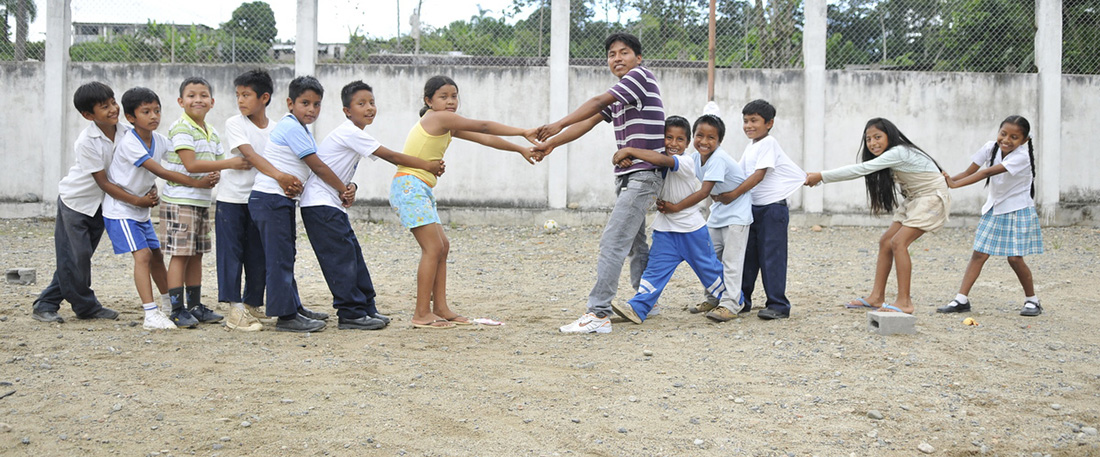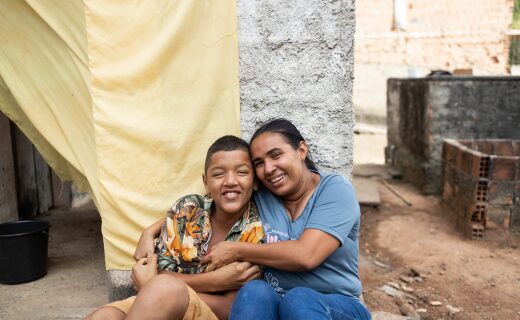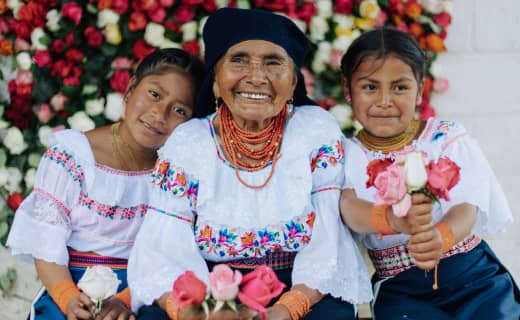Ecuador
Capital City: Quito
Population: 15.56 million
Life expectancy: male 73.6 years, female 79.67 years
Population with improved drinking water: urban 93.4%, rural 75.5%
Adult literacy rate: male 95.4%, female 93.5%
Infant mortality rate: 17.38/1,000
Under 5 mortality rate: 23/1,000
Religion: Roman Catholic 74%, Evangelical 10.4%, Jehovah's Witness 1.2%, other 6.4% (includes Mormon Buddhist, Jewish, Spiritualist, Muslim, Hindu, indigenous religions, African American religions, Pentecostal), atheist 7.9%, agnostic 0.1%
Percentage living on less than $1.90 a day: 4.43%
A little bit of history
Today’s Ecuador formed part of the northern Inca Empire until the Spanish conquest in 1533. In 1822, Ecuador gained independence and became part of Gran Colombia, with its neighbours Colombia, Panama and Venezuela before gaining complete independence in 1830.
The discovery of oil in 1972 led to a huge economic boom as Ecuador became a significant oil producer. Less than a decade later, a fall in global oil prices sent the country into a state of emergency. Although Ecuador marked 30 years of civilian governance in 2004, the period has been marred by political instability.
How the country makes a living
Ecuador’s economy was transformed by the discovery of oil in the 1970s, bringing new economic growth. However, not all benefited from the oil revenues and the traditionally dominant Spanish-descended elite gained far more than the indigenous population.
By 1999, corruption, natural disasters and falling oil prices had brought the country to the brink of bankruptcy and the economy remains unstable. The government has made efforts to address the disparity between rich and poor, but much of the budget remains earmarked for debt repayment and not much has improved for the most vulnerable families.
Challenges faced by children
Nearly 70% of Ecuador’s children live in poverty and a quarter of all children under the age of five suffer from chronic malnutrition. The lack of job opportunities has also forced more three million people to find work in Europe and the United States, separating families and burdening relatives or neighbours with the responsibility of raising their children.
Whilst the oil industry has brought prosperity to some of the population, a great many rural communities are paying the price through contaminated water and environmental damage.
Compassion in Ecuador
Compassion's work in Ecuador began in 1974. Currently, our 255 church partners are caring for more than 78,400 children born into poverty.
What sponsored children learn in ecuador
In Ecuador, children attend their Compassion projects before or after school. During typical project activities, sponsored children take part in:
- Prayer and devotional time.
- Spiritual lessons. Children sing songs and learn Bible stories.
- Break and snack time. Children can play in a safe environment and develop friendships.
- Social lessons. From conflict resolution to developing healthy self-esteem, children who often come from challenging home environments are taught social and personal skills.
- Lunch and social time. Each child receives lunch every day they are at the project. A typical lunch consists of soup or vegetables and meat, and a main dish containing carbohydrates, proteins and vegetables. Some projects offer snacks to the children before they go home as well. It is common to give additional food to children under five.
- Health lessons. Children are taught practical health and hygiene tips.
- Letter writing and career planning. Older children work with project staff to identify their strengths and interests, setting realistic goals for their future.
Additional activities offered by projects in Ecuador include:
- The projects offer football, art, music and dance as extra-curricular activities. Some projects also organise trips and camps.
- Compassion Ecuador have an extra certified curriculum for teenagers called "More than Conquerors" (MQV). The MQV Curriculum covers vocational training, including 17 workshop topics.
- The churches offer parenting classes once or twice a month. Compassion Ecuador believes that parent involvement is critical to the success of the programme so they have created an entire programme that is aimed at strengthening the parents.





